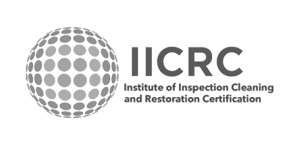What are the problems caused by sewage? Sewage problems have a significant impact on both human health and the environment. Pollution caused by sewage discharge can lead to various health hazards, environmental damage, and financial burdens for communities.
It is essential to understand the gravity of sewage issues and take necessary measures to mitigate the situation. Proper waste management, installation of adequate sewage infrastructure, and regular maintenance can help prevent sewage-related problems from arising.
Key Takeaways:
- Sewage problems have a considerable impact on human health and the environment.
- Poor waste management and inadequate sewage infrastructure can result in serious health hazards.
- Sewage discharge leads to environmental damage, including water quality degradation and ecosystem disruption.
- Communities may face property damage and economic implications resulting from sewage problems.
- Proper waste management practices and investment in sewage infrastructure are crucial for preventing sewage-related issues.
Health Risks Associated with Sewage Contamination
Sewage contamination can be harmful to human health, as it can spread waterborne diseases. Exposure to sewage can lead to various health risks, such as:
| Disease | Symptoms |
|---|---|
| Salmonella | Stomach cramps, diarrhea, fever |
| E. Coli | Abdominal pain, diarrhea, vomiting |
| Hepatitis A | Fever, stomach pain, jaundice |
| Norovirus | Nausea, vomiting, stomach cramps |
It’s important to take measures to prevent sewage-related health hazards. If you come into contact with sewage, wash your hands and clothing thoroughly. Avoid consuming food or water contaminated by sewage. Pay attention to warning signs and stay away from contaminated areas.
Environmental Effects of Sewage Pollution
Sewage pollution is a significant factor in ecosystem disruption, which has far-reaching consequences for the environment. When sewage is discharged into water systems, it leads to water quality degradation, affecting aquatic life and disrupting the balance of ecosystems.
Untreated sewage water contains high levels of organic and nutrient contaminants that can lead to the depletion of oxygen levels in aquatic environments, causing fish and other organisms to die. Moreover, sewage pollution harbors disease-causing microorganisms that can harm aquatic life and pose risks to human health.
To understand the impact of sewage pollution on the environment, take a closer look at the table below.
| Environmental Impacts of Sewage Pollution | Description |
|---|---|
| Aquatic Life | The discharge of sewage into water systems reduces the amount of oxygen in the water, harming fish, amphibians, and other aquatic organisms. The presence of organic and nutrient contaminants in sewage also contributes to the overgrowth of harmful algae, reducing the biodiversity of aquatic systems. |
| Ecosystem Disruption | Sewage pollution disrupts the balance of ecosystems, causing long-term effects on the environment. The disruption of ecosystems can cause damage to communities reliant on natural resources and impact the overall health of the planet. |
| Water Quality Degradation | The high levels of contaminants in sewage water can cause water quality degradation, affecting the availability of clean water resources for human consumption and agricultural activities. |
As sewage pollution continues to affect the environment, it has become increasingly important to adopt sustainable waste management practices that can mitigate the impact of sewage on the ecosystem.
Investing in modern sewage infrastructure and treatment facilities can help reduce the amount of sewage pollution. Additionally, communities and individuals can work towards reducing sewage contamination by preventing the disposal of harmful objects, limiting the use of household chemicals, and avoiding flushing inappropriate materials down the toilet.
In conclusion, the impact of sewage pollution on the environment is significant, causing ecosystem disruption and water quality degradation that can harm aquatic life and pose risks to human health. By implementing sustainable sewage management processes and adopting responsible waste disposal practices, we can reduce the impact of sewage on the environment and safeguard our communities and ecosystems for future generations.
Impact of Sewage Problems on Communities
Sewage spills can have a devastating impact on communities, leading to property damage and financial burdens for both individuals and local authorities. When sewage overflows, it can cause extensive damage to homes, businesses, and other property. In addition to the physical damage, the associated costs of repairs and clean-up can quickly add up, creating an economic burden for those affected.
Furthermore, inadequate sewage infrastructure can result in recurring sewage problems, which can further impact communities. A lack of investment in sewage management systems can lead to a range of economic implications such as decreased property values, increased insurance premiums, and the loss of tourism revenue. The economic ramifications of inadequate sewage management can be far-reaching and long-lasting.
It is crucial that communities prioritize the mitigation of sewage-related issues to protect the health and well-being of residents and the economic stability of the region. By investing in sustainable wastewater management practices, communities can reduce the risk of property damage and economic loss due to sewage problems. It is essential that we take action to safeguard our communities from the impact of sewage issues.
Conclusion
By now, you have gained an understanding of the various problems caused by sewage and how they impact human health and the environment. The health risks associated with sewage contamination, including the spread of waterborne diseases, can have severe consequences for individuals and communities. Furthermore, sewage pollution disrupts ecosystems and degrades water quality, leading to long-term environmental consequences.
It is essential to acknowledge the impact of sewage problems on communities, including property damage and economic implications. Therefore, effective solutions and sustainable sewage management practices are crucial to mitigate these issues.
In conclusion, prioritizing the mitigation of sewage-related problems is crucial to protect human health and the environment. As individuals, communities, and policymakers, we must work together towards implementing effective solutions to promote sustainable sewage management practices. By doing so, we can ensure the well-being of our society and the planet.
FAQ
What are the health risks associated with sewage contamination?
Sewage contamination poses significant health risks, primarily through the spread of waterborne diseases. Exposure to sewage can lead to infections, gastrointestinal illnesses, skin rashes, and respiratory problems. It is vital to avoid contact with sewage and seek medical attention if any symptoms occur.
How does sewage pollution impact the environment?
Sewage pollution has detrimental effects on the environment. When sewage is discharged into water bodies, it leads to the depletion of oxygen levels, harming aquatic life. Additionally, sewage pollution can result in the growth of harmful algae blooms, disrupt the balance of ecosystems, and degrade water quality, threatening the overall health of our environment.
What are the consequences of sewage problems on communities?
Sewage problems can have severe implications for communities. In the event of sewage spills or backups, properties can be damaged, leading to costly repairs and financial burdens for individuals and local authorities. Furthermore, inadequate sewage infrastructure can hinder economic development and adversely affect the quality of life in communities. Investments in sustainable sewage management systems are crucial to prevent such issues.
How can sewage-related health hazards be prevented?
To prevent sewage-related health hazards, it is essential to ensure proper sewage management. This includes regular maintenance of sewage systems, prompt repairs of leaks or blockages, and the implementation of effective sewage treatment processes. Additionally, practicing good hygiene, such as washing hands thoroughly and avoiding contact with sewage-contaminated areas, can help minimize the risk of infections and illnesses.
What can individuals do to address sewage problems and protect the environment?
Individuals can contribute to addressing sewage problems and protecting the environment by adopting responsible practices. This includes avoiding the disposal of harmful substances down drains or toilets, properly disposing of waste materials, and supporting initiatives for sewage infrastructure improvements. Additionally, raising awareness about the importance of sustainable waste management and advocating for stricter regulations can help drive positive change.




















